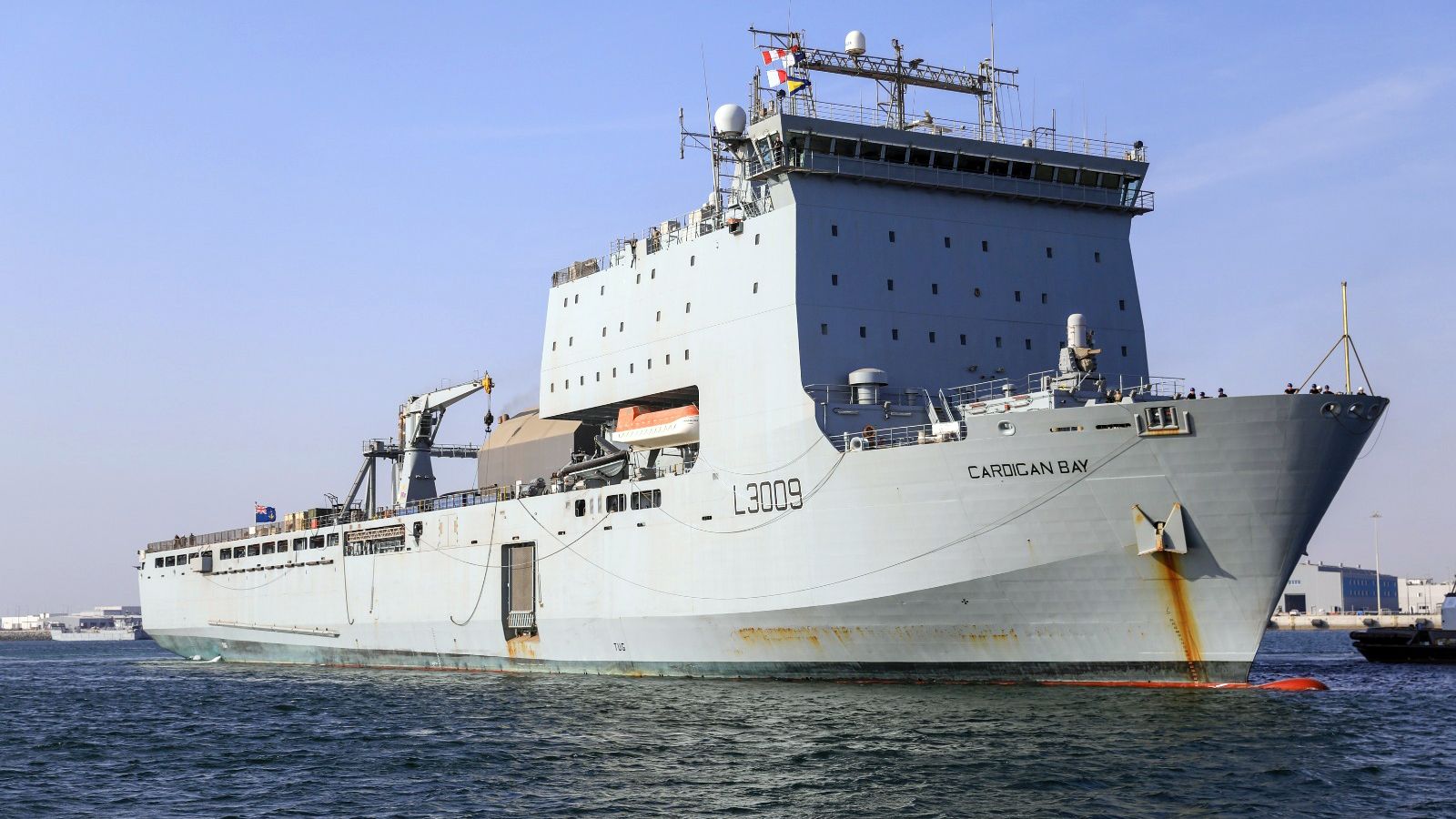Three Royal Navy warships have begun patrols and mine-hunting missions as part of security measures ahead of the Qatar World Cup.
The minehunters, based in Bahrain, are carrying out round-the-clock patrols as well as searching for any mines or bombs.
They are accompanied by a Royal Fleet Auxiliary support ship.
The security mission will also take place during the tournament itself which starts on 20 November and ends on 18 December.
Commander Adrian Visram, who is overseeing the Royal Navy effort which involved 200 personnel, said: “Our mine-hunting force has been out here for 16 years keeping the sea routes open.
“The continuing flow of trade and energy during these tumultuous times is even more vital to UK interests.
“It is an immense privilege to command the Royal Navy’s support to the FIFA World Cup, building upon the strong defence relationship between Qatar and the UK.
“This demonstrates our commitment to working with international allies and partners to protect against threats overseas and promote our values.”
A spokesman for the Royal Navy said: “Three minehunters, plus their mothership, have been tasked to remain in and around Qatar and Central Gulf until Christmas as part of the Qatari-led international security effort, making sure the world’s greatest festival of football is not ruined by a hostile act.
“HMS Chiddingfold and HMS Bangor will conduct round-the-clock patrols of the sea lanes leading to the Gulf state, using state-of-the-art sonar and underwater remote-controlled devices to locate and identify mines or bomb.
“HMS Middleton will remain on standby to provide additional support if needed.”
Read more:
Why is the Qatar World Cup so controversial?
Qatar World Cup a mistake and a ‘bad choice’, says ex-FIFA boss
World Cup critics are ‘arrogant’, Qatar foreign minister says
Qatar’s hosting of the World Cup has proved controversial due to the country’s treatment of LGBT people and women.
Same-sex sexual activity can be met with punishments ranging from seven years in jail to death by stoning under the country’s Sharia law.
Meanwhile, women have to be accompanied by a dedicated male guardian – their father, brother or husband – when getting married, studying, working in government jobs, travelling abroad and receiving some kinds of reproductive healthcare.
There have also been reports migrant workers helping to prepare for the tournament are being exploited.






















